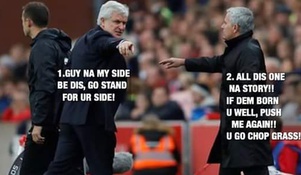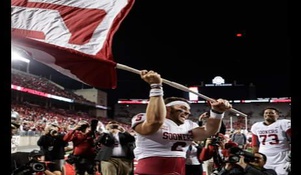The Pitt / Penn State Rivalry. It's Complicated.
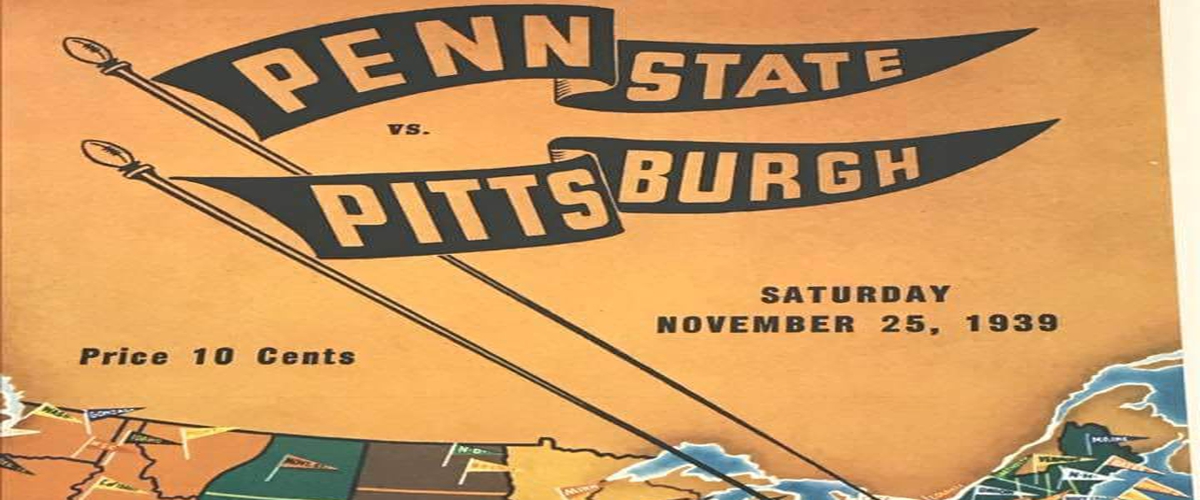
Once upon a time in college football history, rivalries were the centerpiece of every season. It would have been just short of an act of treason to suggest a rivalry would no longer be played or put on hiatus. Conference realignment and; of course, money has interrupted some long term rivalries throughout the country. Pitt and Penn State is one of those rivalries, but much more has factored into the acrimony between the two schools.

This Saturday will mark the 98th meeting between the two. They started playing each other way back in the late 19th century. They played every year and usually the final game of the season from 1900 to 1992. It was brother against brother, family against family, friend against friend.
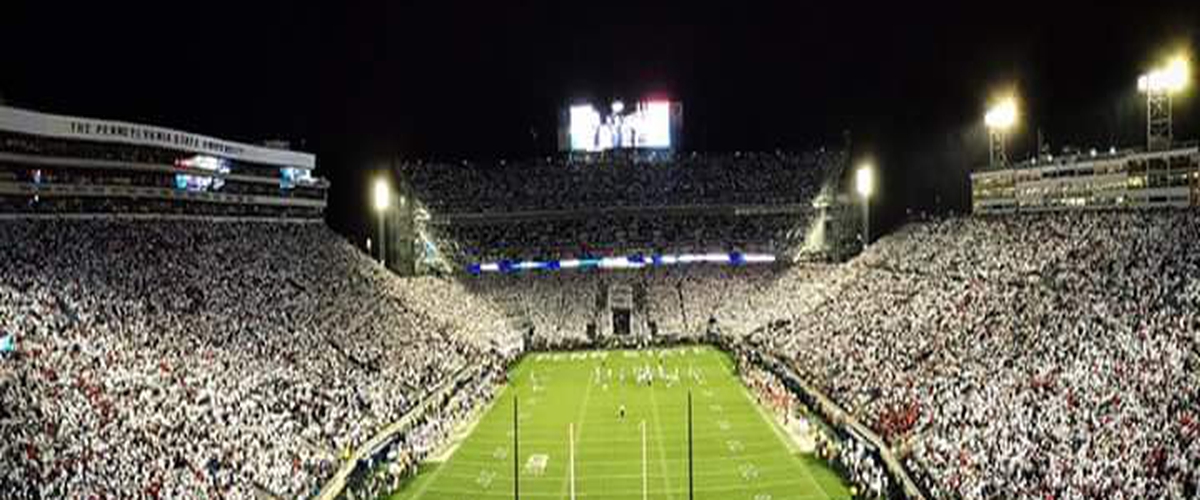
It was virtually impossible to match the intensity of this rivalry between the mid-70s to the mid-80s. Often times, National Title implications were on the line and both schools were loaded with future NFL talent. Pitt and Penn State accounted for 3 of the 11 national titles between 1976 and 1986. The game was one of the few nationally televised in those days every year.
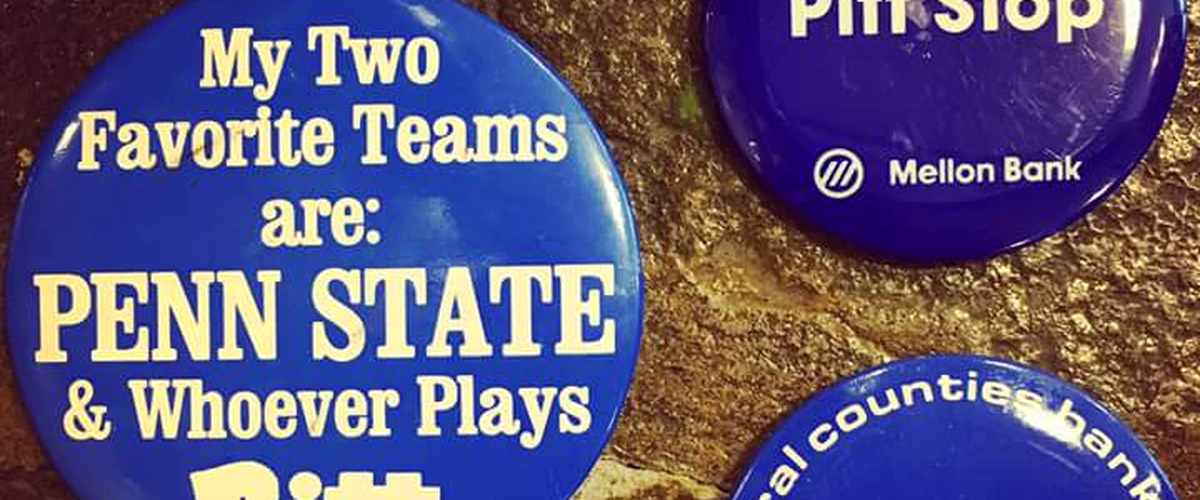
So, what happened? Why doesn't these two schools get their act together and play every year? Some of those answers have their roots dating back to the early 80s. Like Notre Dame, Pitt and Penn State were football independents. Penn State head coach Joe Paterno proposed an Eastern Sports League at that time which would have included both schools and the other major schools in the Northeast. Keep in mind the Big East football conference didn't begin until 1991. Pitt balked at Paterno's proposal and joined the Big East basketball conference in 1982, claiming that Paterno's conference would yield the Lions the lions share of the profits from his league. Many people believe that Paterno held a grudge against Pitt all the way to his grave because of this.
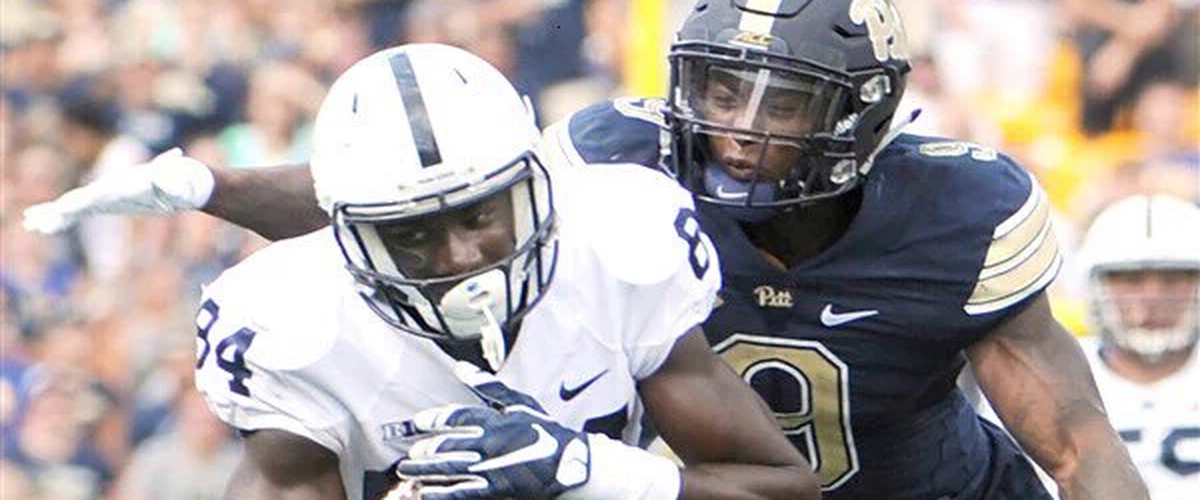
The talk of the rivalry not being renewed began in 1988 and its first hiatus began in the 1993 season. Pitt's share of blame really lies during this time period. Penn State was preparing and started play in the Big Ten beginning in 1994. That season; and with good reason, people believe the Nittany Lions should have been National Champions. Pitt, on the other hand, let its program fall into shambles adding nothing to its new conference. Area high schools had better facilities than the Panthers and the play on the field matched the ramshackle facilities. There was a proposal by the University health system to raze the football stadium and use that property as a parking lot. Both schools were at the different ends of the pecking order of college football, leading the Penn State faithful to feel that there was no need for Pitt anymore.
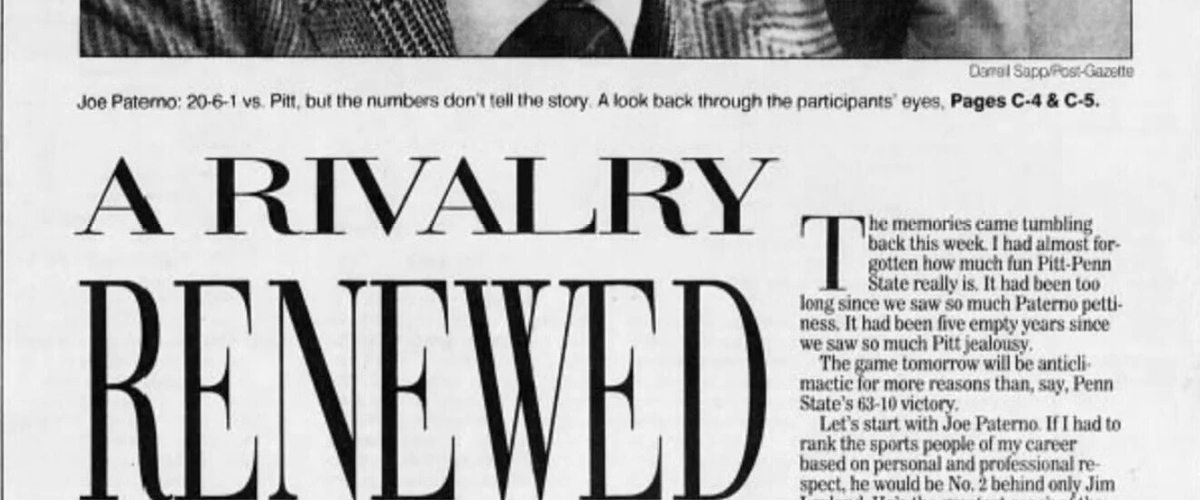
Then a reboot happened. A 4 game home and home series started in 1997. The games were competitive with Pitt winning the last one. But during those four years, the talk of resuming the series on a yearly basis kept hitting a brick wall. Penn State and Paterno had plenty of excuses ranging from 'Pitt being too traditional' to 'we want to play different teams. Granted, scheduling became harder now that both schools are in different conferences. The most memorable sticking point was Paterno's insistence to want to play Pitt twice in State College for every one game in Pittsburgh. He must of been upset at the fact that the Pitt/Penn State football game was played 63 of the previous 76 years in Pittsburgh. Pitt didn't budge from its insistence to a 30 year home and home contract.
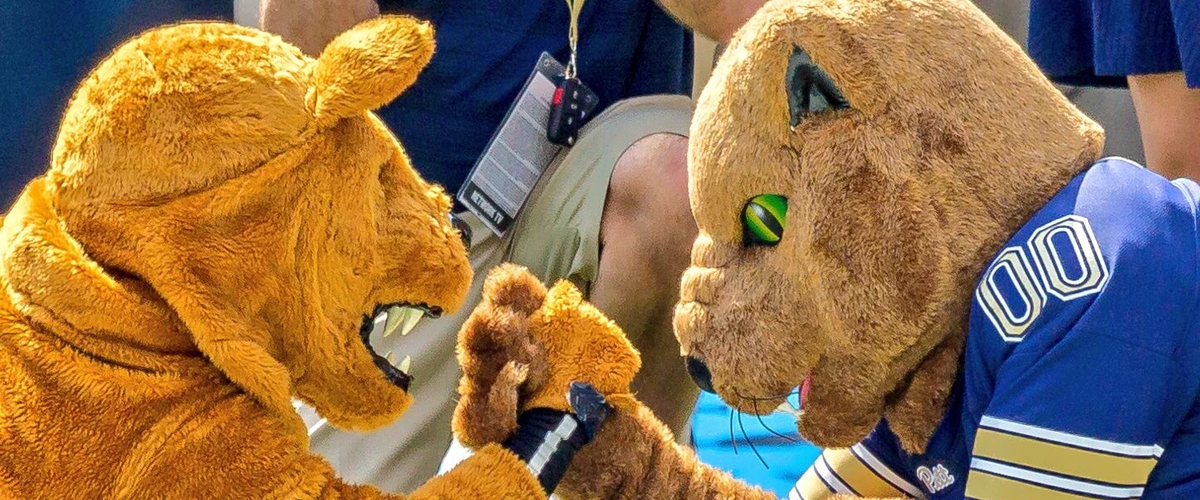
That led to a second and longer hiatus that lasted 16 years. During those lost years, Penn State saw the decline of the Paterno regime and went through the horrible Sandusky scandal. Meanwhile, Pitt built itself back into a competitive program, making a minor bowl game almost every year. It also joined the ACC Conference and enjoys more money and a little more prestige than its Big East years.
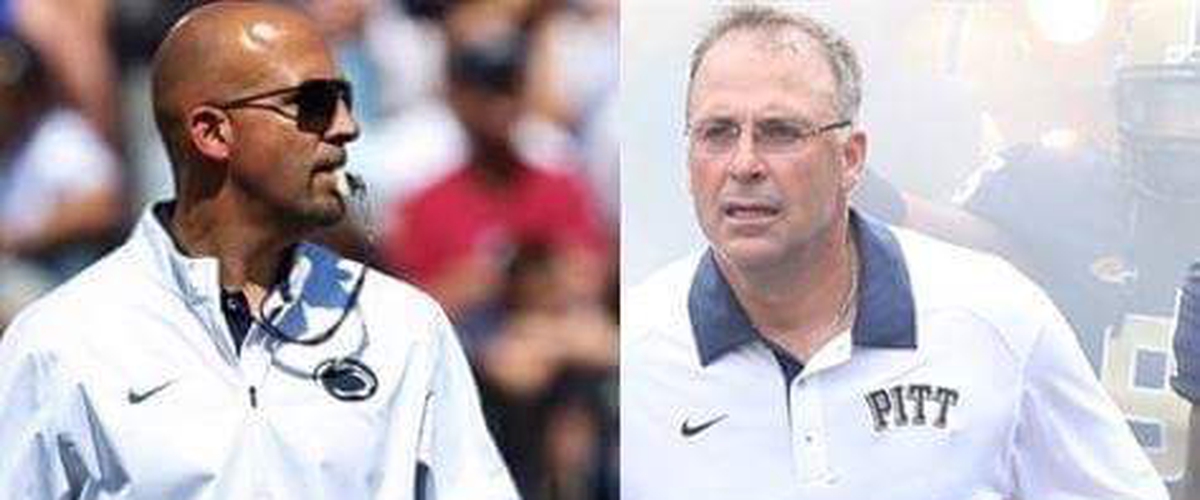
Today, both programs are on the uptick. The Nittany Lions are led by energetic coach, James Franklin and are defending Big Ten Champions. Pitt is continuing to rebuild under intense head coach Pat Narduzzi. They were the only team to be able to knock off the National Champs last year.
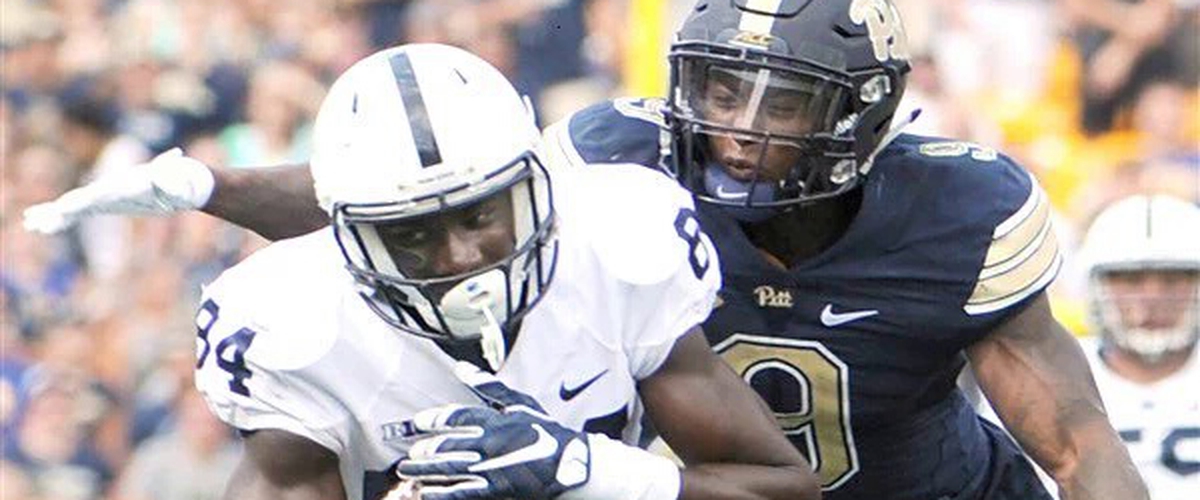
Other than helping the attendance at Pitt a little bit, both schools really don't need each other. Penn State athletic director; Sandy Barbour, has indicated she has no plans to continue the series beyond 2019. Pitt has already renewed the series for four games with its other arch-rival, West Virginia.
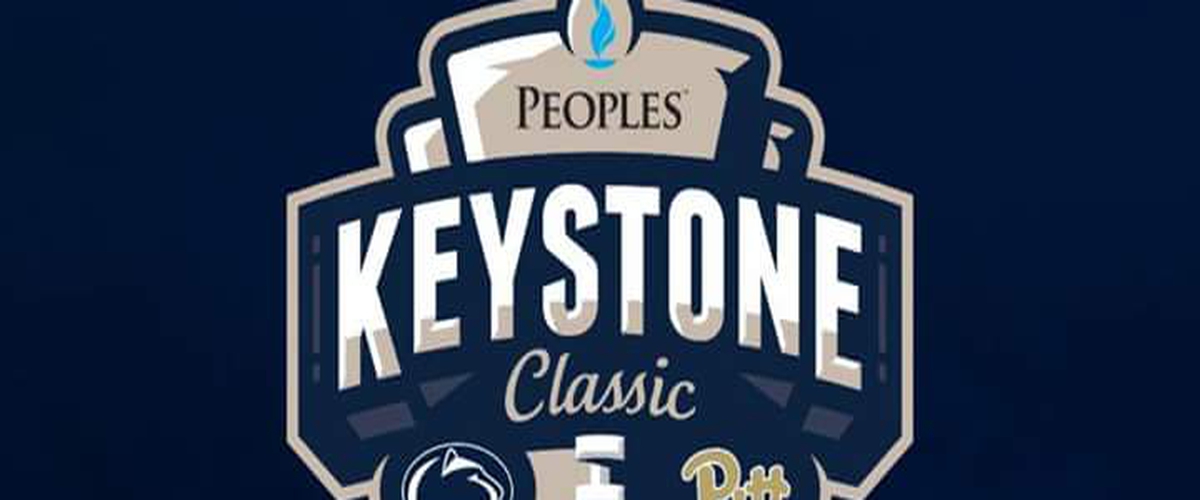
Money rules the roost in today's college football. Old fashioned traditions be damned. Pennsylvania football fans better enjoy these last three games. After the 100th meeting in 2019, it may be a long time for the next one.

